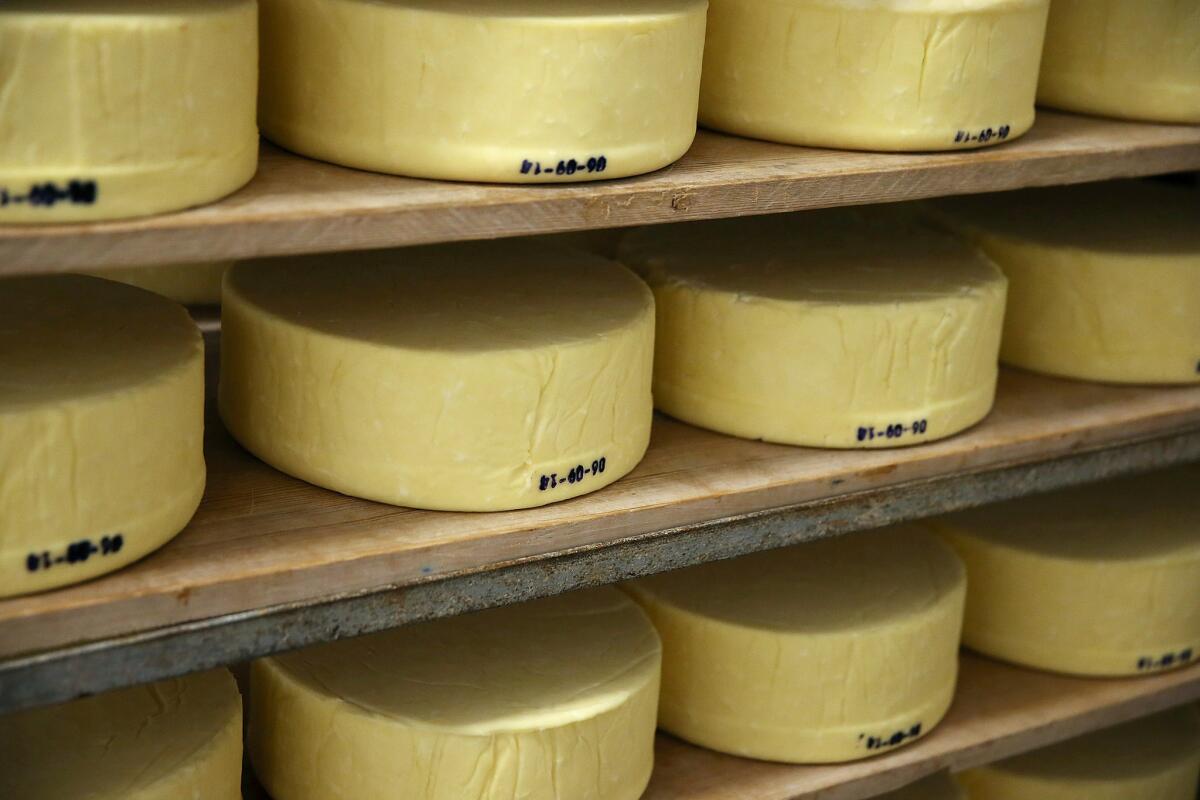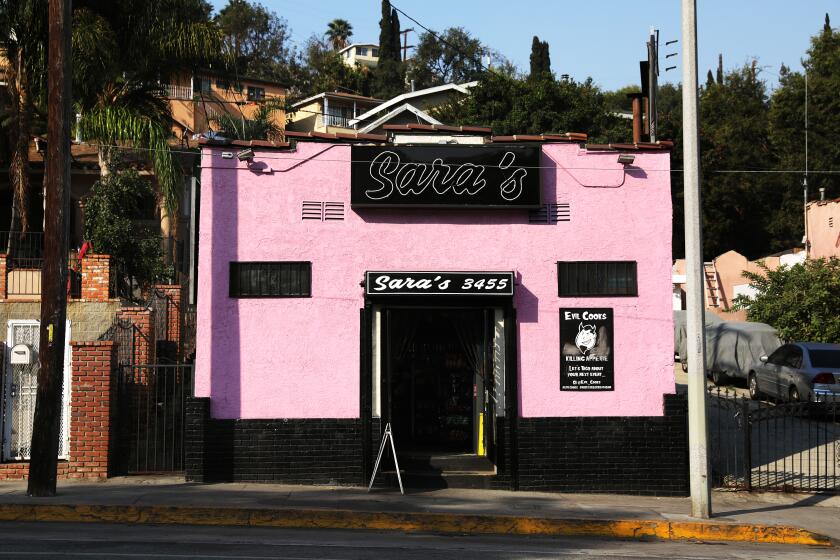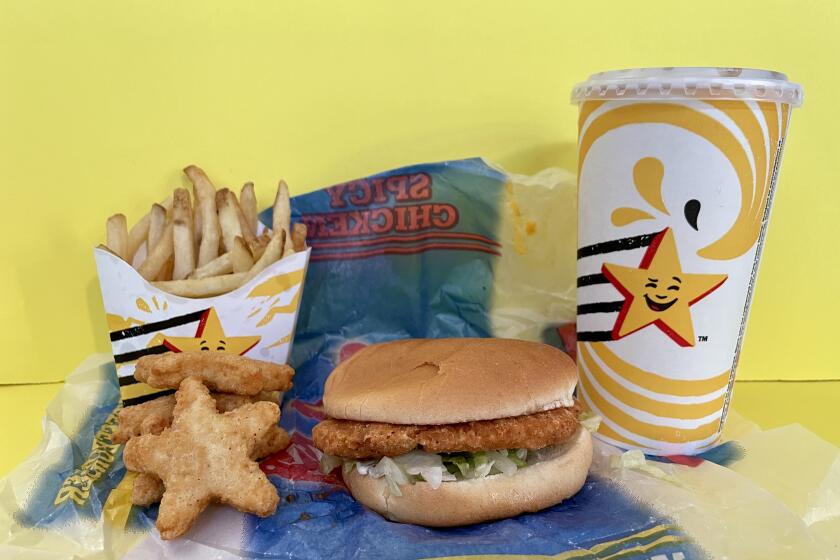End of the cheese world averted; FDA says wooden shelves are OK

Cheese makers love to use wooden shelves for aging because they can harbor the various harmless bacteria that can contribute to a cheese’s flavor.
But their porous surfaces can also provide a home to dangerous bacteria that can kill.
Given all that, perhaps the most surprising thing about the Food and Drug Administration’s crackdown on wooden aging shelves in cheese caves earlier this week — vague and short-lived as it was — is that it took so long to happen.
A little background: Aging cheeses on wooden shelves is a time-honored tradition around the world. In fact, it is part of the requirements for making cheeses as varied as French Reblochon and Italian Parmigiano-Reggiano.
In the United States it has a long history as well. There are, literally, tons of cheeses aging on wooden shelves in this country for both small artisans and major industrial producers.
The FDA has never said anything about this, though their regulations require that cheese be aged on shelves made of material that is “adequately cleanable.”
Enter the Finger Lakes Farmstead Cheese Co., a small dairy in upstate New York, which was shut down in 2012 because inspectors found listeria bacteria — potentially fatal to humans — on its wooden aging shelves.
When it applied to reopen in 2013 after a thorough cleaning and disinfecting, the FDA refused, citing the continued presence of her wooden aging shelves, Nancy Taber Richards, owner of Finger Lakes, told the New York Times.
“Wooden shelves or boards cannot be adequately cleaned and sanitized,” wrote FDA branch chief Monica Metz, who is in charge of dairy and egg safety. “The porous structure of wood enables it to absorb and retain bacteria, therefore bacteria generally colonize not only the surface but also the inside layers of wood. The shelves or boards used for aging make direct contact with finished products; hence they could be a potential source of pathogenic microorganisms in the finished products.”
Predictably, this raised a ruckus in the cheese world.
“FDA May Destroy American Artisan Cheese Industry,” trumpeted Forbes.
Wisconsin cheese maker Chris Roelli told told Cheese Underground blogger Jeanne Carpenter, “The very pillar that we built our niche business on is the ability to age our cheese on wood planks, an art that has been practiced in Europe for thousands of years.”
“This rule, if consistently enforced, will both throw an enormous wrench into many American cheesemakers’ operations and drastically shake up the availability of many beloved European cheeses,” L.V. Anderson wrote on Slate.
By Wednesday afternoon, the FDA was clarifying its position — or backing down, depending on who is doing the telling.
“The FDA does not have a new policy banning the use of wooden shelves in cheese-making, nor is there any FSMA requirement in effect that addresses this issue,” the agency said in an official statement. “Moreover, the FDA has not taken any enforcement action based solely on the use of wooden shelves.
“In the interest of public health, the FDA’s current regulations state that utensils and other surfaces that contact food must be ‘adequately cleanable’ and properly maintained. Historically, the FDA has expressed concern about whether wood meets this requirement and has noted these concerns in inspectional findings. FDA is always open to evidence that shows that wood can be safely used for specific purposes, such as aging cheese.
“The FDA will engage with the artisanal cheese-making community to determine whether certain types of cheeses can safely be made by aging them on wooden shelving.”
This is not the first and it will probably not be the last time food safety has come up against artisanal food practices. In fact, a very similar controversy erupted in Europe during the introduction of uniform food safety regulations for the European Union.
In the early ‘90s there was a stink in France about what was claimed to be an EU regulation limiting the amount of bacteria that could be found in cheese. In that case as well, the regulators claimed it was all a misunderstanding and the problem went away, never to be heard from again.
Follow me on Twitter at @Russ_Parsons1
More to Read
Eat your way across L.A.
Get our weekly Tasting Notes newsletter for reviews, news and more.
You may occasionally receive promotional content from the Los Angeles Times.











